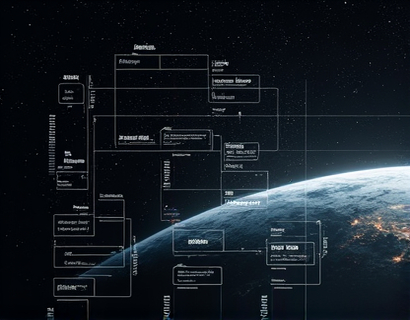Elevate Your Leadership: A Comprehensive Management Dashboard for Streamlined Team Administration and Enhanced Productivity
In the fast-paced world of business and organizational management, leaders are constantly seeking ways to optimize their processes, enhance communication, and make informed strategic decisions. A key tool in achieving these goals is a sophisticated management dashboard, designed to streamline operations and empower leaders to manage their teams more effectively. This article delves into the importance of such a dashboard, exploring how it can transform the way business leaders and organizational managers oversee their teams, ultimately driving productivity and efficiency.
The Need for a Comprehensive Management Dashboard
Modern organizations, whether they are startups or established enterprises, face unique challenges in managing their workforce. As teams grow in size and diversity, the complexity of administration increases exponentially. Traditional management methods often fall short in handling the volume of data, the need for real-time updates, and the requirement for seamless communication across various departments. A comprehensive management dashboard addresses these challenges by providing a centralized platform that integrates multiple functionalities into one accessible interface.
Streamlining Operations
One of the primary benefits of a management dashboard is its ability to streamline operations. By consolidating various tools and processes into a single dashboard, leaders can reduce the time spent switching between different applications and systems. This consolidation not only simplifies the workflow but also minimizes the risk of errors and miscommunications. For instance, task management, project tracking, and resource allocation can all be managed from a single dashboard, ensuring that everyone is on the same page and working towards common goals.
Enhancing Communication
Effective communication is the backbone of any successful organization. A comprehensive management dashboard facilitates better communication by providing real-time updates and notifications. Team members can receive instant feedback, updates on project statuses, and important announcements without the need for endless email threads or disjointed meetings. This immediate access to information fosters a more collaborative environment, where team members can quickly address issues and make decisions collectively.
Empowering Strategic Decision-Making
Data-driven decision-making is crucial for the growth and success of any organization. A management dashboard equips leaders with the necessary tools to analyze data and gain insights that inform strategic decisions. Advanced analytics and reporting features allow leaders to monitor key performance indicators (KPIs), track progress over time, and identify trends that might not be immediately apparent. This data-driven approach ensures that decisions are based on solid evidence, reducing the risk of guesswork and increasing the likelihood of successful outcomes.
Customizable Dashboards
Every organization is unique, with specific needs and requirements. A comprehensive management dashboard offers customization options to tailor the platform to the specific needs of the organization. Leaders can choose which metrics to track, set up custom reports, and configure notifications to focus on the most relevant data. This flexibility ensures that the dashboard remains a valuable tool, continuously adapting to the evolving needs of the business.
Integration with Existing Systems
Seamless integration with existing systems is another critical feature of a comprehensive management dashboard. Many organizations already invest in various software solutions for different aspects of their operations, such as customer relationship management (CRM), human resource management (HRM), and financial management systems. A well-designed dashboard can integrate with these tools, creating a cohesive ecosystem where data flows smoothly between different platforms. This integration not only saves time but also ensures data consistency and accuracy.
User-Friendly Interface
A user-friendly interface is essential for the adoption and effective use of a management dashboard. Leaders and their teams should be able to navigate the platform with ease, without requiring extensive training or technical expertise. An intuitive design with clear navigation, responsive layouts, and accessible features ensures that users can focus on their tasks rather than struggling with the tool itself. This ease of use promotes higher engagement and more frequent use of the dashboard, maximizing its benefits.
Real-Time Monitoring and Alerts
Real-time monitoring and alerts are powerful features that enhance the effectiveness of a management dashboard. Leaders can set up alerts for critical events, such as project deadlines, resource shortages, or performance anomalies. These alerts ensure that issues are addressed promptly, preventing them from escalating into larger problems. Real-time monitoring allows leaders to stay informed about the current state of their operations, making it easier to make timely adjustments and maintain control over the organization’s direction.
Collaboration Tools
Collaboration is key to team success, and a comprehensive management dashboard includes robust collaboration tools. Features such as shared workspaces, document management, and task assignment facilitate teamwork and ensure that everyone has access to the resources they need. These tools help break down silos and foster a culture of collaboration, where team members can work together seamlessly towards common objectives.
Enhancing Productivity
The ultimate goal of a management dashboard is to enhance productivity and efficiency within the organization. By streamlining operations, improving communication, and providing data-driven insights, leaders can create an environment where their teams can thrive. Productivity gains are not just about completing tasks faster; they also involve improving the quality of work and fostering a positive work culture. A well-implemented dashboard can lead to increased employee satisfaction, higher retention rates, and a more motivated workforce.
Case Studies and Success Stories
Numerous organizations have already experienced the transformative impact of a comprehensive management dashboard. For example, a mid-sized software development company implemented a dashboard to manage its agile development processes. The result was a 30% reduction in project delivery time and a significant improvement in team collaboration. Another case involves a large retail chain that used the dashboard to optimize inventory management, leading to a 25% decrease in stockouts and overstock situations. These success stories underscore the potential benefits of adopting such a tool.
Conclusion
A comprehensive management dashboard is an invaluable asset for business leaders and organizational managers looking to elevate their leadership and drive productivity. By streamlining operations, enhancing communication, and empowering strategic decision-making, these dashboards provide a holistic solution to the challenges of modern team administration. As organizations continue to grow and evolve, the ability to adapt and leverage advanced tools will be crucial in maintaining a competitive edge. Embracing a comprehensive management dashboard is a step towards a more efficient, collaborative, and successful future.










































